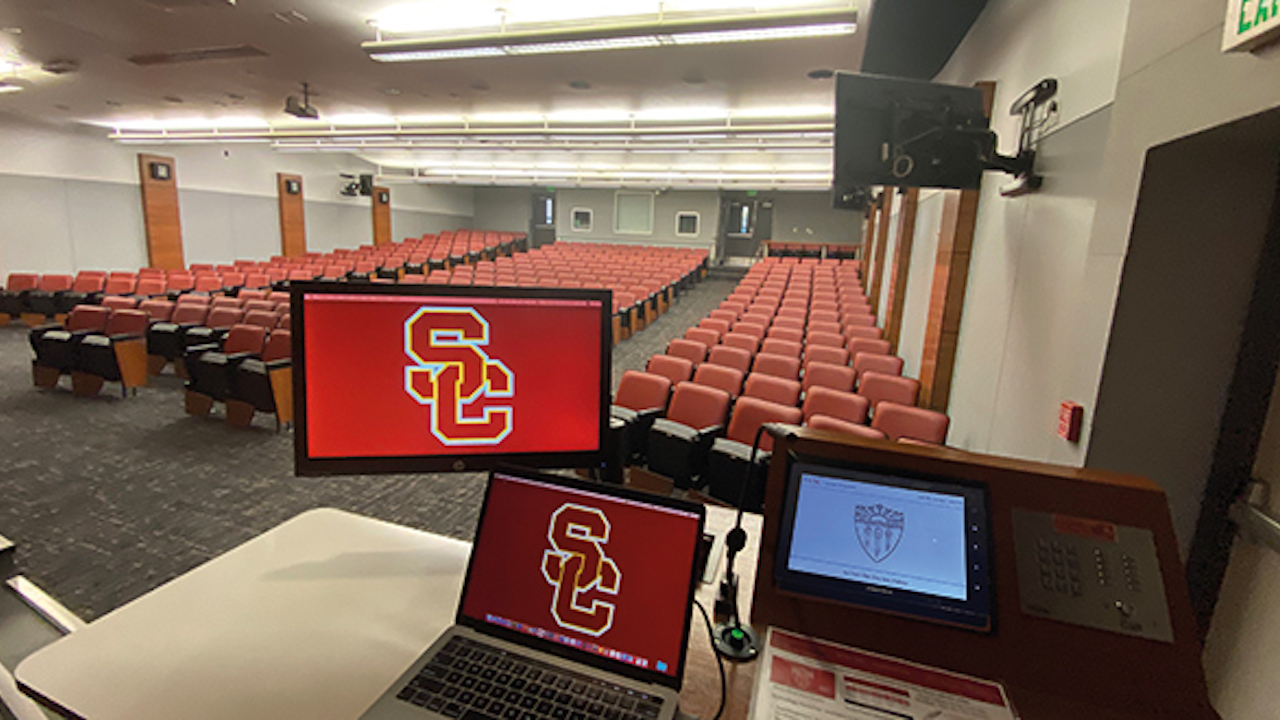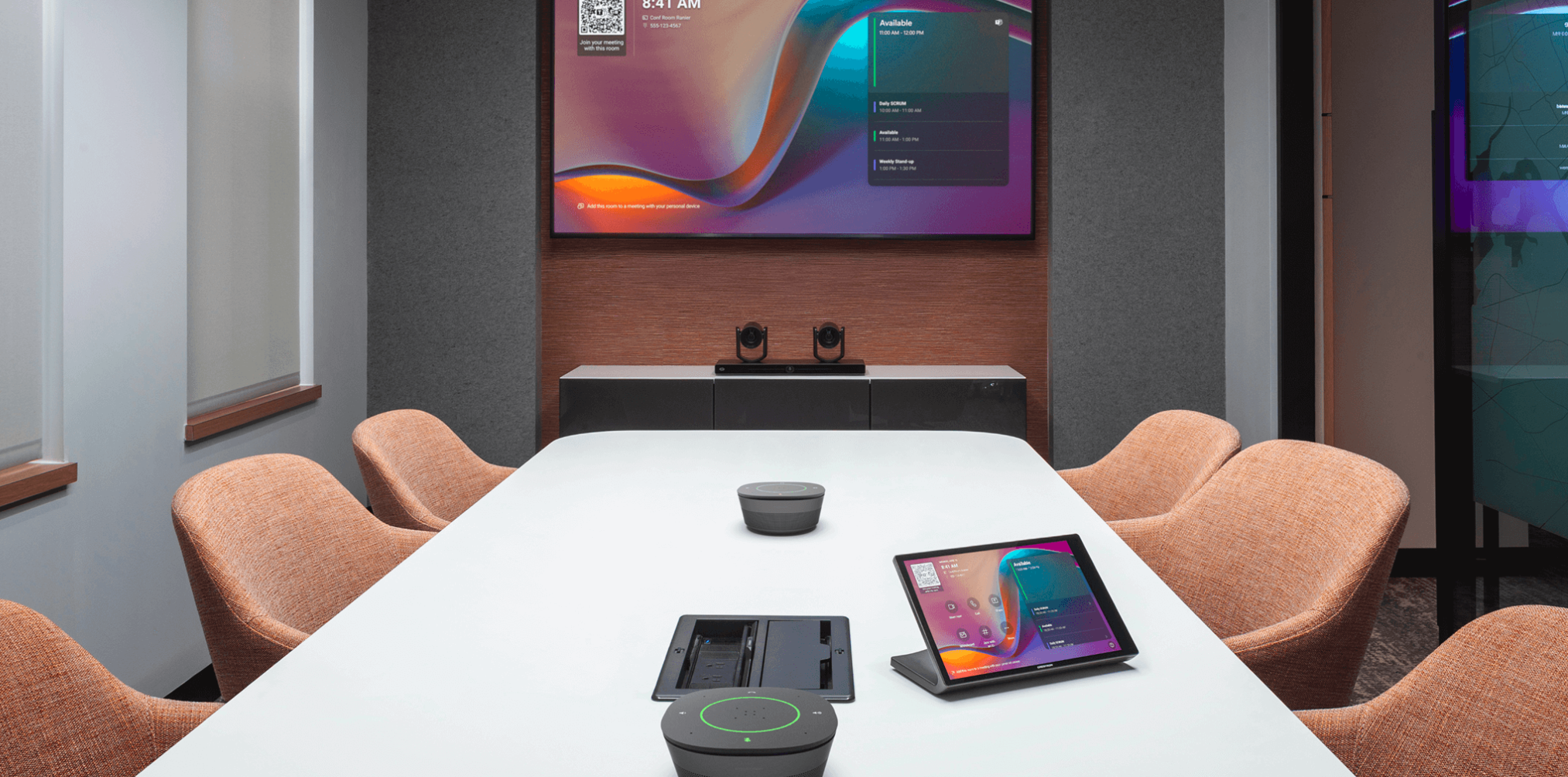USC Makes Campus-Wide Pivot to Hybrid Learning

The University of Southern California (USC) has deployed a vast AV network to over 248 learning environments that will be foundational for a new hybrid distance/on campus educational program the school will roll out this fall. According to Joe Way, USC director of learning environments, the systems, which all feature Dante networking, enable faculty to simultaneously give lectures on campus, on-stream, and also archive for future use.
Way said that the system also facilitates classroom overflow—a result of classroom occupancy levels being dropped by up to 70 percent to accommodate social distancing. In this scenario, the faculty member will be present in a classroom with a small group of students with additional small groups participating in the same lecture from adjacent rooms. The overflow rooms are equipped with cameras, microphones, displays/projectors, and networked sound systems to facilitate interaction.
Related: The Technology Manager's Guide to Distance Learning and Streaming
The system also supports situations where the faculty member is uncomfortable or unable to be on-campus. In this instance, the faculty member will present from home to students in classrooms and those attending remotely.
“The system needs to be flexible to change at any time,” Way said, acknowledging the dynamic nature of the pandemic. “We are moving to all-network-based AV that will allow us to transmit any signal to any location. Dante is critical in our ability to lecture-capture and microphone-share.”
Way and his team developed a templated approach that can be modified to facilitate varying workflows depending on the subject, department, and lecturer preferences. The core of the system, however, is a Crestron Flex UC Engine (the B140-Z or C160-Z, where Z stands for Zoom). These allow users to take a Zoom Virtual Room and make it live—using all NVX352s to encode and decode Dante. Dante-enabled Shure networked mics—either MXA 910s or 710s—are used for lecture and student capture. Dante AVIO units are also widely used as encoders with some handheld mics and as output when the team needs to zone the room and cut the speakers near the microphone.
Dante Domain Manager network management software enables user authentication, role-based security, and audit capabilities for Dante networks while allowing seamless expansion of Dante systems over any network infrastructure. Way said the flexibility of the system is impressive, noting he expects to manage up to 1,100 nodes of Dante when the integration is complete.
A daily selection of features, industry news, and analysis for AV/IT professionals. Sign up below.
“It’s critical that our system be as cloud-based and software-based as possible,” Way said. “By using Dante Domain Manager, we’re able to ensure we have complete observability, control, and security across the network. And we’re able to utilize it both with the scheduling system we have and with individual instructor preferences. For the most part, faculty will be able to walk in at their scheduled time and the room will be ready for the way they want to teach. With things like Dante’s audio routing at our fingertips, we can set it all up ahead of time.”
For students who are on campus but constrained by isolation requirements, AV-over-IP provides high-quality access to lectures and content directly over the school network. For those who are taking classes off-campus, AV-over-IP helps school IT to implement robust streaming services, eliminating unnecessary hardware and complexity so that students can get to the content they need wherever they are.
“Elite institutions like USC have earned a reputation for excellence based on the quality of the education traditionally delivered in campus lecture halls,” said Joshua Rush, Audinate senior vice president of marketing and product management. “Now, as they seek deliver the same high-quality educational experience remotely, the AV network is what connects the faculty and student body. A stronger network means a better connection, a better experience, and better education.”
Way will join Audinate’s Rush on a webinar to discuss the changes forced on educators and how network technologies can facilitate pivots to remote, hybrid and online learning models. To learn more or sign on for the webinar visit audinate.com/edu.
The AVNetwork staff are storytellers focused on the professional audiovisual and technology industry. Their mission is to keep readers up-to-date on the latest AV/IT industry and product news, emerging trends, and inspiring installations.
